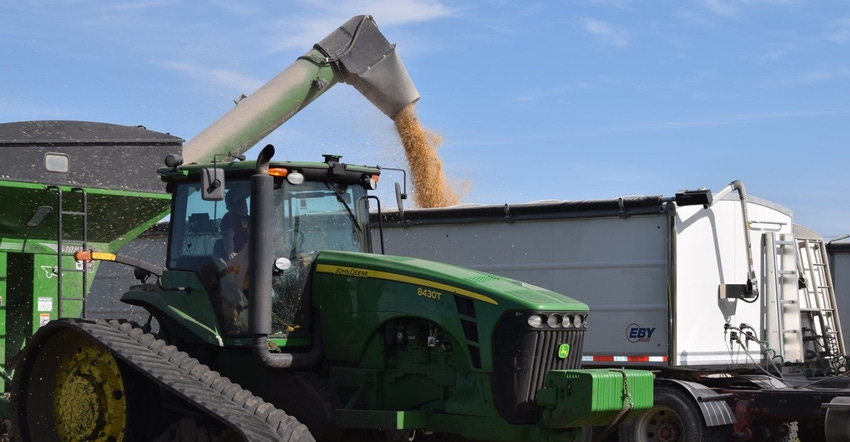March 23, 2020

Coronavirus has farmers wondering what to expect in the grain and livestock marketplace and how this global health threat might impact the recently announced Phase 1 trade deal with China. China has agreed to buy $12.5 billion in U.S. ag products in 2020, and $19.5 billion more in 2021. Recent world events cause uncertainty as to when those shipments will begin, and whether the targets will be met.
“Farmers are hopeful, but they want to understand how the Phase 1 deal will impact their income and export potential, and coronavirus adds significant uncertainty,” notes Iowa State University economist Wendong Zhang.
In an article he co-wrote for The Conversation, a nonprofit media outlet, Zhang says China can still make the purchases called for in the deal, at least for the year 2020, but current events will make doing so more challenging. “A resilient and recovering Chinese economy means China can comply with the trade deal and potentially minimize damage to the U.S. economy from an ongoing trade war. But make no mistake. These disruptions are profound.”
Virus threat reducing demand
New restrictions in China and the U.S. have led to significant reductions in Chinese imports, he says, with the possibility that the start date for the Phase 1 deal could be pushed back to late April or May. The rapid spread of COVID-19 in Europe and the U.S. makes Chinese buyers even more cautious regarding overseas personnel and cargo flows.
Zhang wrote the article with Tao Xiong, ag economics professor at Huazhong Agricultural University in China and a visiting scholar at ISU’s Center for Ag and Rural Development. The authors say another factor affecting trade is market prices. The Phase 1 deal allows Chinese ag purchases to be based on market prices and commercial considerations, rather than quarterly purchase targets or commodity-specific purchase contracts. This provision gives China more flexibility with what it purchases. For example, China recently bid on U.S. grain sorghum.
Zhang says there is reason for U.S. farmers to be optimistic. For example, China’s own post-coronavirus recovery and increased demand for pork and other proteins is due mostly to the devastating effects of African swine fever.
“Once life returns to normal, as the coronavirus outbreak slows globally, I think the orders and shipments will slowly ramp up. But the coronavirus will definitely be a hard hit,” Zhang says.
Worldwide recession expected
“It’s always looked like it was going to be challenging for China to meet their targets in the trade deal, but now it’s even more challenging,” says ISU economist Dermot Hayes. COVID-19 has slammed China where the government has imposed widespread quarantines and travel restrictions. Companies worldwide are scrambling to get supplies, and global exports are slowing, too. “China has congestion at some of their ports where ships have been waiting to be unloaded,” he says. “That’s bad for U.S. soybean exports, as well as beef and pork.”
Prices for corn, soybeans, pigs and other commodities have tumbled along with the U.S. stock market, and demand will be weaker with a slowdown in the global economy, says Hayes, who is concerned about a worldwide recession.
Studies predict global economic growth will fall 2% or more this year from 2.9% in 2019. The effects of financial market weakness and disruption of daily life around the world will trigger lower consumer spending and investment on top of the disruptions to the global supply chain.
The worst-case scenario for the Iowa economy and agriculture would be if the U.S. were to quarantine regions, as China has, to prevent coronavirus spread. The more quarantines or travel restrictions, the bigger the hit on the economy.
About the Author(s)
You May Also Like






